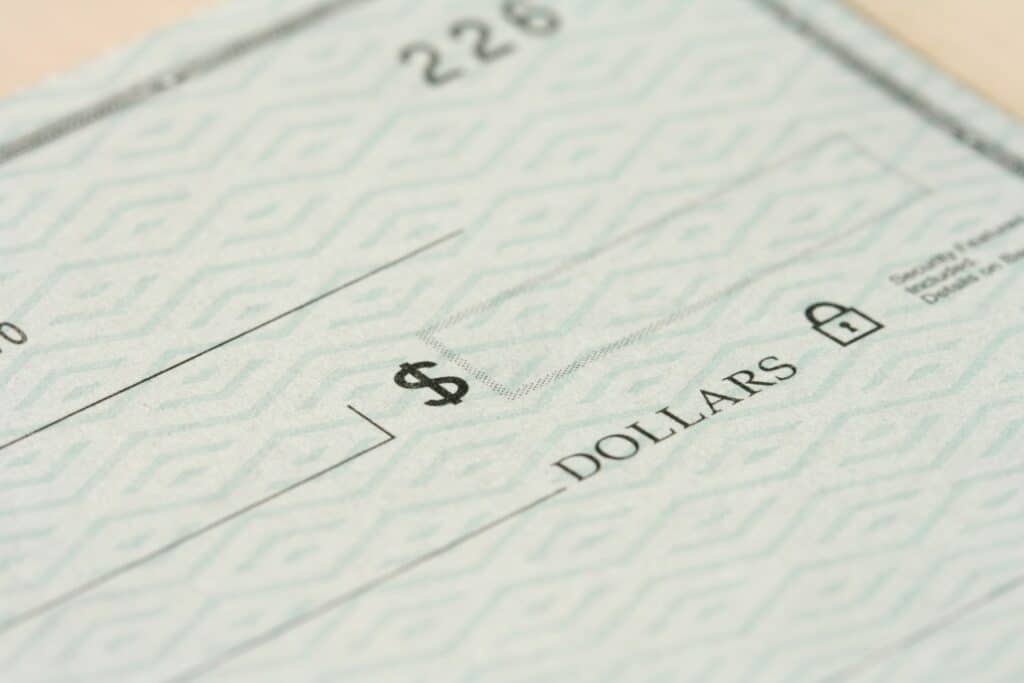Keeping track of your paycheck records might not be a top priority, but it’s essential for your financial stability. Maintaining these records means keeping track of your income and other payroll-related information, which can be useful in various circumstances.
Whether you’re planning to apply for a loan, buy a new home, or you need to file your taxes, having accurate records can make the process much more manageable. That is why we provide you with all the information about how to properly maintain your records hassle-free. Let’s begin!
Key Takeaways
- Paycheck records contribute to financial stability and serve as a valuable reference for various activities, such as applying for loans or filing taxes.
- Tracking income and payroll-related details facilitates various financial transactions, making processes like buying a home more manageable.
- Effectively managing paycheck records acts as a safeguard, protecting against fraud and identity theft, thereby securing one’s financial future.
- Regularly reviewing paycheck records allows for the identification of income patterns, monitoring deductions, and addressing discrepancies promptly, ensuring accurate and fair compensation.
The Benefits of Keeping Paycheck Records
Maintaining paycheck records can help you manage your finances more effectively. By keeping track of your earnings, you can ensure accurate payment and financial stability. Here are some of the additional benefits you can look forward to:
- Tracking your income: One of the primary benefits is that you can track your income more accurately. By documenting your earnings and comparing them over time, you can identify patterns in the way you’re paid and identify discrepancies that may need to be addressed.
- Monitoring deductions: You can also monitor deductions, ensuring that you’re not being overcharged for taxes, insurance, or other expenses. If you notice that a deduction is incorrect, you can contact your employer and get it corrected before it becomes a larger problem.
- Securing your finances: Keeping these records is also a way to secure your finances. By documenting your payment history and maintaining detailed paycheck records, you can protect yourself from financial fraud and identity theft. Additionally, having a record of your income can be helpful if you need to apply for a loan or credit card in the future.
Effective Ways to Manage Payroll Records
To manage your paycheck records effectively, it’s essential to develop good organizing habits. Here are some practical tips to help you stay on top of your finances:
- Go paperless: Opt for paperless paystubs to access your records easily and securely via your employer’s online portal. This way, you can avoid the hassle of handling physical copies and minimize the risk of loss or damage.
- Create a dedicated folder: If you prefer keeping physical copies of your records, dedicate a folder solely to store them. Organize paystubs chronologically to enable smooth referencing in the future.
- Organize it electronically: Use apps or software to organize your records electronically. You can scan and upload physical copies, create tags or labels to sort them and access them on various devices.
- Track regularly: Check your records regularly to ensure that your employer is paying you accurately and fairly. Keep track of the hours you spent working, rate of pay, overtime, and other details. A regular review can help you catch inconsistencies early and request corrections if necessary.
Securing Payroll Records for Future Reference
Securing your paycheck records is crucial for future reference. It is important to maintain a paystub statement for each pay period, including the amount of hours worked and deductions taken. This information can be useful for future financial transactions, such as applying for loans or rental applications.
One effective way to secure your records is by creating a dedicated folder in your computer or cloud service. Organizing your records electronically not only saves space but also makes them easily accessible when needed. Additionally, utilizing paperless paystubs helps reduce the risk of losing physical copies and provides a secure alternative.
It is also important to keep your personal information secure. Only share your records with verified sources when necessary. Avoid sharing them on public platforms or with individuals whom you do not trust.
In case of any discrepancies, it is crucial to contact your employer and clarify any concerns. This can prevent misinformation and ensure that your paycheck records are accurate and up-to-date.
Understanding Payroll and Paycheck Records
Payroll refers to the system of administering employee payments, including calculating the hours they spent working, withholding taxes and other relevant details, and issuing paychecks or direct deposits. As an employee, understanding payroll and your records is essential to ensure accurate and fair compensation.
A pay period refers to the timeframe during which employees are compensated, typically ranging from weekly to monthly. Within each payment period, employees record the hours spent working and any applicable additional compensation, such as overtime pay or bonuses. It is important to review your paystub each payment period to verify that the information on it is accurate.
| Term | Definition |
|---|---|
| Hours Worked | The total number of hours an employee has worked for a specific pay period. |
| Deduction | The amount of money withheld from an employee’s paycheck for taxes, insurance, retirement, or other benefits. |
The Fair Labor Standards Act (FLSA) is a federal law that establishes minimum wage, overtime pay, recordkeeping, and child labor standards for employees in the private sector and federal, state, and local governments. It is important for employees to be aware of their rights under this law.
How to Obtain Paycheck Records
Obtaining your records is essential for tracking your income and ensuring accurate payment. Here are some effective ways to get your paystub:
- Request paystubs from your employer. This is the most common way to get your records. You can ask your HR department or payroll administrator to provide your paystubs. Make sure to specify the period of time you need the paystub for.
- Use your employer’s online platform. Some companies provide online access to the records. Check with your employer to see if they offer this service. You will need to create an account on the platform and use your Social Security Number (SSN) to log in.
- Contact your bank. If you have set up a direct deposit with your employer, your paystub may be available through your bank account. Contact your bank to see if they can provide your records.
Conclusion
Maintaining paycheck records is crucial for your financial stability. By keeping track of your income and ensuring accurate payment, you can better manage your finances and avoid discrepancies.
Effective ways to manage your records include utilizing paperless paystubs, organizing them electronically, and creating a dedicated folder. It’s also essential to secure your records for future reference, such as obtaining paystub statements and maintaining them for future financial transactions.
To obtain your records, you can request check stubs from your employer or use your Social Security Number to access online platforms.
Overall, managing your records is a vital part of your financial management. By following the tips and understanding the importance of these records, you can ensure financial stability and have a reliable reference for future transactions!
Paycheck Records FAQ
#1. How long to keep payroll records?
The standard best practices and regulations set by the Department of Labor require employers to keep personnel records for at least four years.
#2. What are the benefits of using payroll software?
Using payroll software, such as Intuit QuickBooks, can streamline the payroll process, ensure accuracy, and provide easy access to organized payroll records.
#3. Should I hire a payroll company to manage my records?
Employers can either hire a payroll company with a good reputation or hire an internal payroll person who is knowledgeable about maintaining payroll records efficiently.
#4. What information should be included in employee pay stubs?
Employee pay stubs should include details like pay rate, total hours worked, gross wages, tax withholdings, and net pay, among other relevant compensation information.
#5. Are employers required to keep pay records for nonexempt employees?
Yes, employers are required to keep pay records for nonexempt employees in order to ensure compliance with wage and hour regulations.
#6. What are the consequences of not maintaining accurate payroll records?
Failing to maintain accurate payroll records can result in legal and financial repercussions for employers, including penalties and potential disputes with employees over compensation.






